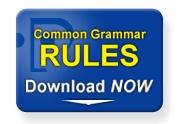Two nouns as a unit. Closely linked nouns are considered a single unit in forming the possessive; only the second element takes the possessive form.
- my aunt and uncle's house
- Gilbert and Sullivan's musicals
- Minneapolis and St. Paul's transportation system
but - my aunt's and uncle's specific talents
- our friends' and neighbors' children
Compounds. In compound nouns and noun phrases the final element usually takes the possessive form. If plural compounds pose problems, opt for of.
- a cookbook's index
- student assistants' time cards
- my daughter-in-law's office
but - the offices of both my daughters-in-law
Genitive. Analogous to possessives, and formed like them, are certain expressions on the old genitive case. The genitive here implies of.
- an hour's delay
- in three days' time
- six months' leave of absence (or a six-month leave of absence)
- three years' experience
Possessive versus attributive forms. The line between a possessive or genitive form and a noun used attributively--as an adjective--is sometimes fuzzy, especially in the plural. Although terms such as employees' cafeteria sometimes appear without an apostrophe, our guide dispenses with the apostrophe only in proper names (often corporate names) or where there is clearly no possessive meaning.
- a consumers' group
- taxpayers' associations
- children's rights
- the women's team
- a boys' club
but - Publishers Weekly
- Diners Club
- Department of Veterans Affairs
- a housewares sale











